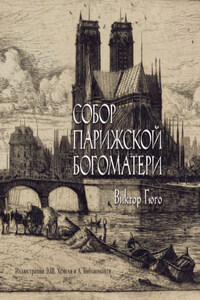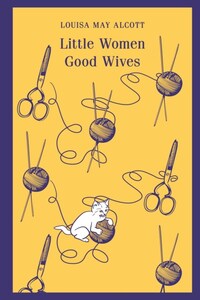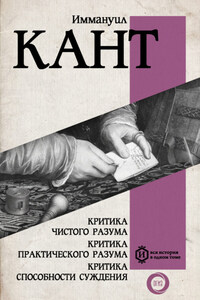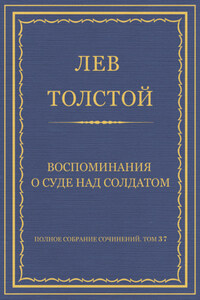There is no page in England’s history so bright, nor of which Englishmen have such reason to be proud, as that covering the period between 1640 and 1650. This glorious decade was ushered in by the election of the “Long Parliament,” and I challenge the annals of all nations, ancient or modern, to show an assembly in which sat a greater number of statesmen and patriots. Brave as pure, fearless in the discharge of their difficult and dangerous duties, they faltered not in the performance of them – shrank not from impeaching a traitor to his country, and bringing his head to the block, even when it carried a crown. True to their consciences, as to their constituencies, they left England a heritage of honour that for long haloed her escutcheon, and even to this hour throws its covering screen over many a deed of shame.
“Be a King?”
“Am I not one?”
“In name – nothing more. Ah! were I a man and in your place?”
“What would you do?”
“Give your island churls a taste of kingship, as we know it in France. My brother wouldn’t let his subjects so beard him. Oh, it’s abominable!”
“Ah, chère; for subjects your brother has a very different sort of people to deal with. In France they’re not yet come to clamouring for what they call their rights and liberties. Here in England they’ve got Magna Charta into their heads – to a craze.”
“I’d have it out of their heads, or have their heads off. Ciel! I’d reign King as King should, or resign. No! not resign. Sooner than that I’d waste the country with fire and sword – make it a wilderness.”
It was Henrietta, wife of Charles the First, who thus expressed herself to her husband. They were alone in the gardens of Whitehall Palace, sauntering side by side on a terrace overlooking the Thames, the afternoon being an unusually fine one. As they made a turn which brought Westminster Hall before their eyes, the angry fire in those of the Queen flashed up again, and she added —
“Anything but be dictated to by that canaille of a Parliament! Anything but let them go on as now?”
“How am I to hinder it, Henriette?” the King timidly interrogated.
“Dismiss – send them packing back to their constituencies, and let them prate away there as much as they please. Dissolve and do without them, as you’ve done before.”
“That would be to do without the money we so much need. My subjects are determined to resist every tax levied under Privy Seal or otherwise. I can no longer raise loan or sell monopoly. Your own secretary, Sir John Wintour, has just been telling me how the people of Dean Forest have been harassing him about the grant we gave him of its timber and mines. Impossible now to obtain the most insignificant supplies without their being sanctioned by this cabal called Parliament.”
“Then make the cabal sanction them.”
“But how, chère?”
“Have a score or two of them arrested – lodged in the Tower; and let Monsieur Tom Lunsford take care of them. He’ll soon cure them of their seditious inclinings.”
“To do that were as much as my crown’s worth.”
“If’t be worth no more, you may as well cease wearing it. Fling it into the Thames, or melt it down and sell it to the Ludgate Street goldsmiths for old metal. Shame of you, Charles! You talk of kingly rights, yet fail to exercise them – fear it?”
“My subjects talk of rights, too.”
“Yes, and you encourage them – by your timidity. Ever on your knees begging this and begging that, when a true king would command. Subjects, indeed! more like our masters. But I’d teach them obedience. What would they be without a king? What were they born for but to administer to our wants and our pleasures?”
Words worthy of a Medici; the sentiments of a queen two centuries and a half ago. Yet not so very different from those entertained by most Royal personages at the present day and hour. But few of them who would not sit placidly upon their thrones, see subjects slain, and realms reduced to desolation, rather than resign crown or yield up one iota of what they are pleased to call their prerogative. How could it be otherwise? Environed by sycophantic flatterers, heads bowing, knees bending, tongues eternally bepraising; things in human shape giving them adoration as to God Himself – ay, greater than to God – how could it be otherwise? Not so strange that this proud, pampered woman, from her cradle accustomed to such slavish obedience, should verily believe it but her due.
“Their rights?” she continued, with a satirical laugh. “An absurd notion they’ve got into their Saxon skulls. Ah! mon mari, were I you for a month – for a week – I’d have it out – stamp it out – I would.”
And to give emphasis to her speech, she stamped her foot upon the ground.
A pretty foot it was, and still a handsome woman she, this daughter of the Medicis, notwithstanding her being now somewhat passé. Ambitious as Catherine herself – “that mother of a race of kings” – intriguing, notoriously dissolute, not the less did Charles love her. Perhaps the more, for the cuckoo’s cry is a wonderful incentive to passion, as to jealousy. He doted upon her with foolish fondness – would have done anything she commanded, even murder. And to more than this was she now instigating him; for it was to stifle, trample out the liberties of a nation, no matter at what cost in life or blood.














